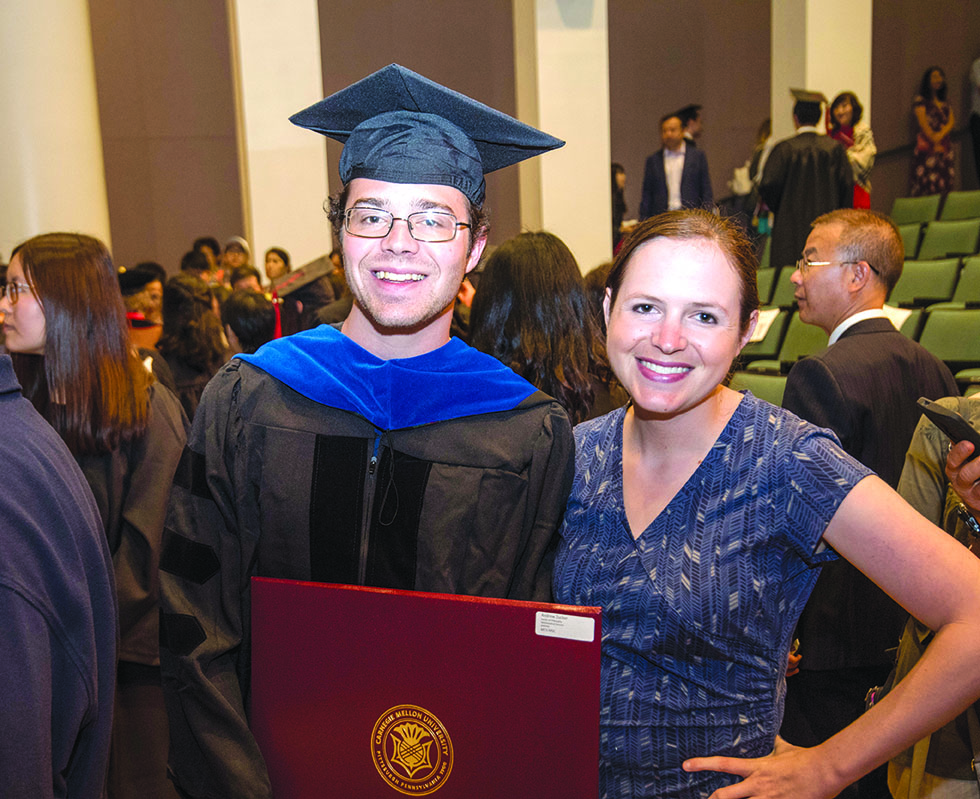
Andrew Zucker’s Love of Math Takes Him to the City of Love
Andrew Zucker can’t remember a time when he didn’t love math. Growing up in Greeley, Colorado, pursuing an education and career in mathematics just seemed natural to him.
When he began his undergraduate studies at the California Institute of Technology, Zucker initially thought he wanted to study combinatorics, but quickly found that his heart was in logic.
“When I took my first course in logic, it seemed to use all the parts of combinatorics that I liked while putting everything into a beautiful theoretical framework,” said Zucker.
As an undergraduate, Zucker made his first contributions to the field of topological dynamics, publishing in the journal Fundamenta Mathematicae.
After graduating from CalTech, Zucker came to Carnegie Mellon’s highly regarded logic program to continue his studies. Under the tutelage of Associate Professor Clinton Conley and Professor James Cummings, he researched the interactions between logic, dynamics and descriptive set theory. As a doctoral student, he continued to make impressive contributions, particularly refining the connections between Ramsey theory and topological dynamics.
“Andy’s work around metrizable universal minimal flows and the generic point problem are his most impressive contributions to the field, but they are not his only ones,” said Conley. “In general, Andy has a very strong research program connecting combinatorial regularity principles with their dynamical counterparts and had remarkable success advancing this program while still a graduate student.”
His work was so impressive, Conley said, that it caught the attention of international experts in the field. When attending a set theory conference at the Centre International de Rencontres Mathématiques near Marseille, France, Conley heard Zucker’s theorems referenced in two separate talks.
After completing his Ph.D. program in the spring, Zucker moved to Paris. His graduate work earned him a prestigious National Science Foundation post-doctoral fellowship to study at the Université Paris Diderot, which has a large logic group and brought him closer to collaborators in Paris, Lyon and Marseille, France.
“Mathematically, I feel like I’ve been more productive than ever, and I get to explore France and elsewhere in Europe, too,” said Zucker.
